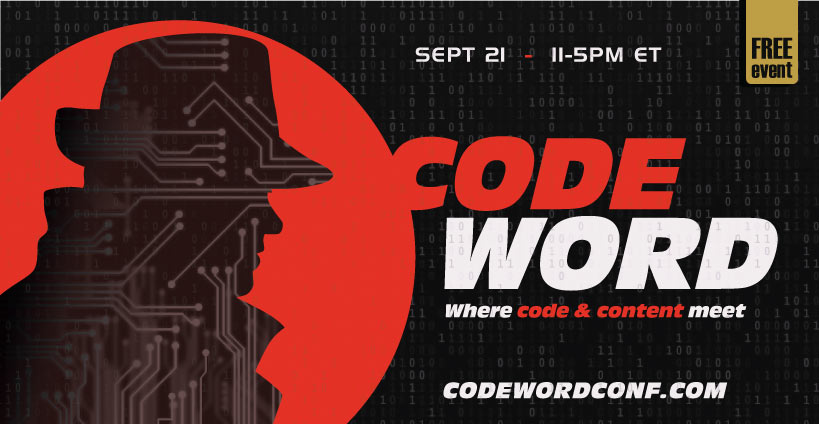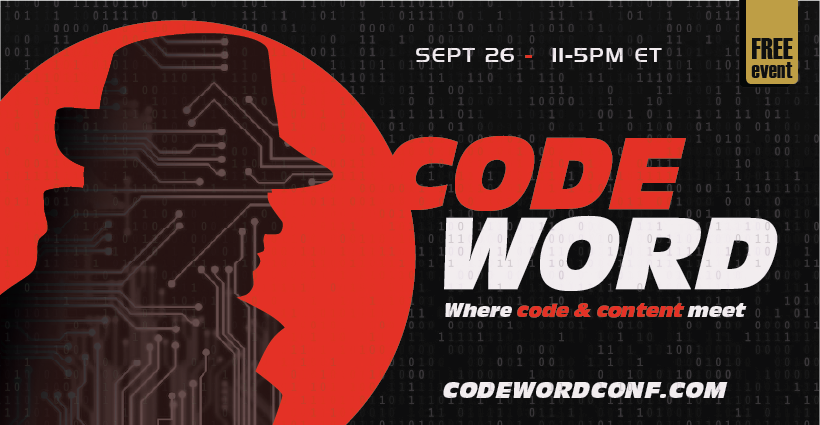Cassidy Williams 0:13
Hi, my name is Cassidy Williams, and I’m the CTO over a Contenda. I’m really excited to speak to you today about authenticity and adaptation, more specifically around the challenges that we face with these topics as content creators, a lot of individuals, but also companies and their executives, in particular, hire ghost writers to make their content for them because of SEO because of marketing, because of thought, leadership, et cetera. One time I actually worked for a company who did hire ghost writers. And they approached me at one point and said, Okay, we’re trying to add a bunch more buzzwords to our blog and have a lot more content, would you mind putting your name on this blog that we wrote for you. And when I looked at it, it was a topic that I knew a lot about, but the blog was not my favorite, I had to rewrite so much of this article. And it ended up just being a complete waste of time and resources, because I was rewriting a bunch of it, which I shouldn’t have had to because we hired people to do it. But then also, it just wasn’t the type of content that I wanted my name on. To this day, I don’t share that post publicly, because it just doesn’t sound like me. The ghost writers, though there know what they’re doing like this is their job. They just didn’t do the research that I would have done for this article. And it wasn’t using the voice that I would have used for that particular topic.
Cassidy Williams 1:39
A lot of companies now are turning to AI tools to do a lot of this reading for them. But as I’ve spoken with founders, with leaders, with marketers with Dev advocates, the constant complaints that I’m hearing is that these tools are very robotic sounding, or they’re very obviously written about something where the writer doesn’t have much domain knowledge, or it just doesn’t have the brand voice that they’re seeking for the things that they’re writing about. And so because of all of this, I really try to write as much of my content myself as possible, despite the appeal of AI tools. Keeping up with the pace of content creation, though, is a challenge. Not everybody has the time to be writers and video creators and podcasters, and live streamers and thought leaders, you get the picture. And that is why these tools exist. That’s why ghostwriting professionals exist. And granted, you can hire people who are the professionals at a particular piece of knowledge. Or you could say these are the articles you need to read to make sure that you have all of the research that you need to write this article which companies do that by the way. But again, it’s just expensive. And there comes a point where it’s just not that authentic, and it is slowed down significantly, because you have to try to make it as true to you as possible. That being said, I started to take on a strategy that I call using every part of the buffalo when I was at Netlify. And it’s a quote that my team said very often where it was how can you take a piece of content, and just kind of reuse it a ton. So with Next.js in particular, that’s a framework that I admit I’ve used quite a bit. But when I was first getting started with it, I did not know much about it, I was more of a vanilla react gal. And on my team, we wanted to educate people both about the framework, but also how it was supported on the platform. So as I learned different aspects of this framework, I just kept writing everything down. And eventually I turned what I wrote down into blogs. And then I turned that into podcast episodes, I turned that into conference talks, I turned that into online courses. I turned that into webinars, I turned that into live streams. Eventually, we were establishing more of Netlify as authority in the field. And for myself, I was establishing me as an expert with this framework. But it all came down to taking one piece of content and breaking it up and rehashing it, and just using every single part of it to death until we could get all the juice that we wanted out of it. And it kind of makes you think when we talk about building content websites when we talk about building content systems and workflows, we talked about using a lot of composable tools, a lot of the talks today talk about using very composable tools and CMS and all of that. But why can’t we do that for content.
Cassidy Williams 4:42
When you have a piece of content where you can reuse even parts of it here and there. As a result, you start to speed up and you start to write more and more and more because you already have the building blocks of the things that you want to build. I’m going to be honest, I was editing this slide and It was fully corrupted. And I didn’t notice it until I was way too deep into editing and changed my outfit. So ignore that part, my learning and public workflow, because of this whole using every part of the buffalo mentality, it’s really changed how I have a workflow for making content in general, where now, whenever I’m learning something in general, whether it’s learning a new Git command, or a new JavaScript library, or game development recently or anything, in general, I think about how could I turn this learning into a piece of content? Now, that kind of sounds a little bit chilly and Twitch streamers. But the reason why I do this is not because I want to output a ton of content, but because I’m thinking to myself, What do I wish were out there? What do I want to read what is missing in the landscape of whatever I’m learning that I could add my voice to in an authentic way, where for my future self, if I’m ever forgetting what I learned, for whatever reason, I can go back and read it or see whatever video I made. But also, it’s filling a need. And also, as I’m learning and as I’m making this content, it’s become so natural for me that it just happens really, really fast. Where a grand majority of my blog posts, I actually write in probably less than five or 10 minutes, purely because it’s just part of my workflow now, where as I’m learning, I’m writing, as I’m creating something, I’m explaining something, it helps me learn better, and it helps me create better and more authentically with my voice. And now I will very smoothly transition to my conclusion. Anyway, thank you so much for listening to my talk today. A lot of the experiences that I’ve shared about ghostwriting, and about all of the writing that I’ve done is really just to illustrate that I’m very passionate about authenticity and content creation. There’s a lot of tools out there, including the ones that we’re building at my company, and more that are being built to address this problem. And I do think that emphasizing that you want to be authentic and not just mass produced content as much as possible is the key to getting a loyal community and following and an audience that actually wants to hear what you have to say. Until next time, thanks


